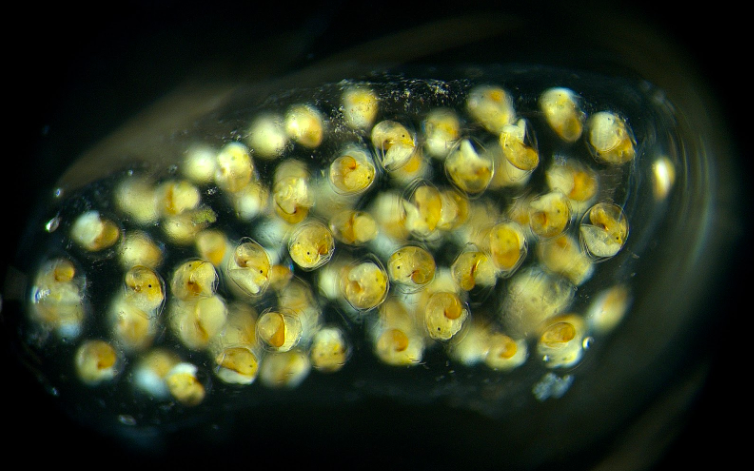
Born and raised on Maui, Hawaiʻi, Michaela Johnson has a deep love for the ocean and interest in understanding and conserving marine life.
“I always knew that I wanted to pursue a scientific career, but struggled for a long time finding the right degree for me because I had so many areas of interest,” Johnson said. “When I discovered the Global Environmental Science (GES) degree, I finally felt like I had found a program that I could make my own while still providing me with a solid scientific foundation.”
Through the GES Bachelor of Science degree program in the University of Hawai‘i at Mānoa School of Ocean and Earth Science and Technology (SOEST), Department of Oceanography, Johnson connected with professor of biology Amy Moran to conduct her senior thesis research.
With Moran’s guidance, Johnson studied embryonic Siphonaria normalis, which is a native false limpet that is abundant in the rocky intertidal areas around Hawaiʻi. They were interested in how tolerant the marine snail is to warm ocean water. During her project, Johnson discovered that Hawaiʻi’s intertidal waters can sometimes reach temperatures that lead to higher mortality of these animals.
“With climate change increasing average global temperatures, Siphonaria normalis embryos will likely be at a higher risk of mortality and we may see a decline in their populations on our rocky shorelines,” Johnson added. “A change in the abundance of these herbivorous snails may have a future impact on the community assemblage in our intertidal ecosystems.”
When asked about the value of her research experience, Johnson said, “The thesis project allowed a unique opportunity to explore what my future career in research could be like.”
Now that she has graduated, Johnson is continuing her internship at the Hawaiʻi Institute of Marine Biology Shark Lab to assist with research activities and gain additional work experience in marine wildlife conservation. The Shark Lab conducts lab and field work to investigate the behavior and ecology of sharks and other fishes, which helps to inform management strategies of Hawai’i’s marine ecosystems.
“I hope to continue my academic career in graduate school once I determine what I would like my scientific niche to be,” she said. “Regardless of the specific field I choose to pursue, I know that I’ll focus on protecting Hawai’i’s ocean ecosystems.”
More on the GES Program
The GES program, administered by the Department of Oceanography, trains high-quality, passionate students to be knowledgeable in Earth-system science and to think creatively about the challenges facing communities and natural resources now and in the future. As a GES degree requirement, each student is guided by a faculty mentor and performs original scientific research, writes a research thesis and presents their findings publicly. Mentors include SOEST faculty, global leaders in the fields of ocean, earth and space science, as well as technology. Throughout the GES degree program, students are engaged in fieldwork, laboratory work, and field trips, and can participate in research projects on deep ocean and coastal research vessels, or at SOEST’s world-class Hawai‘i Institute of Marine Biology.
Read also on SOEST News.